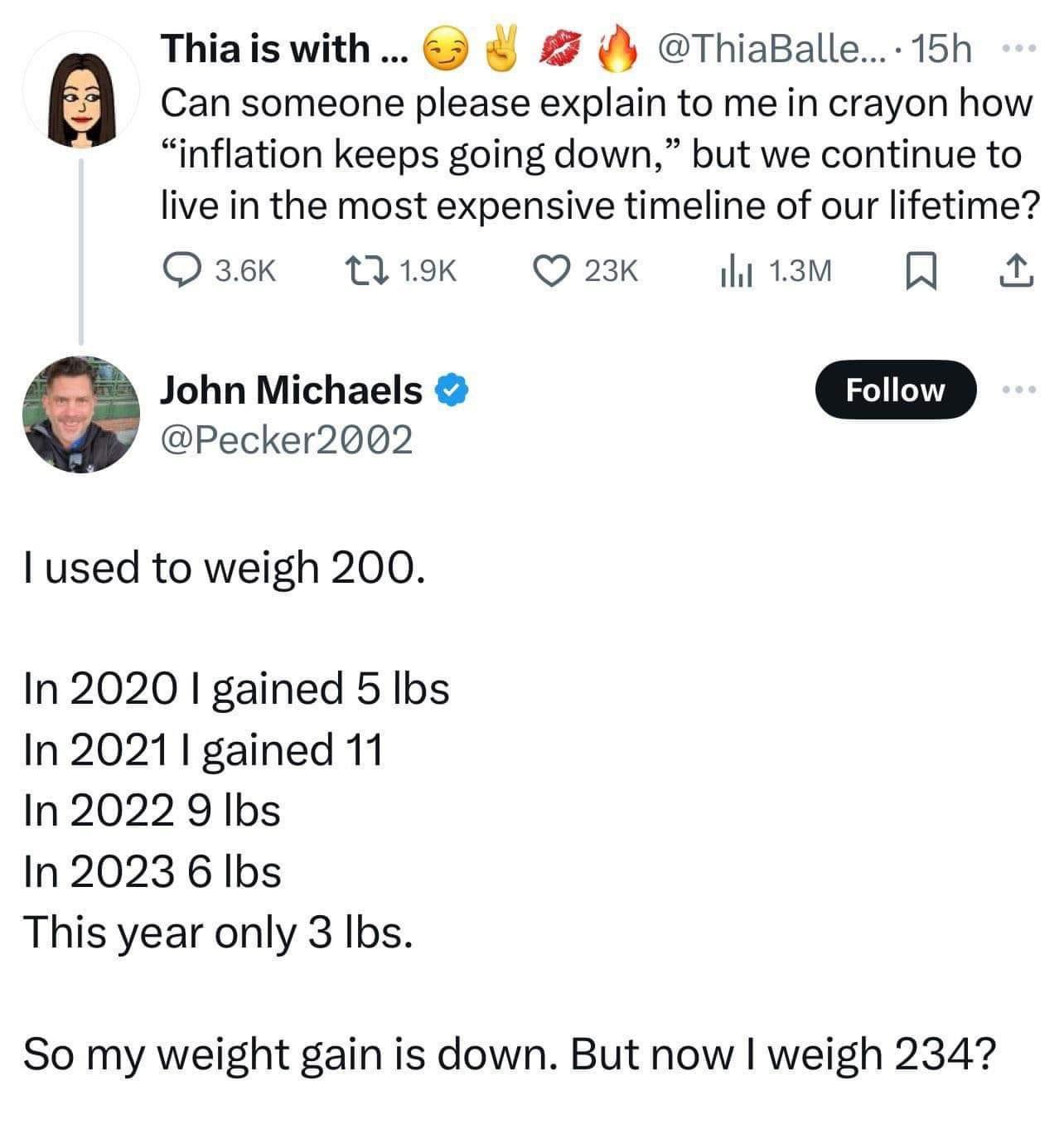this post was submitted on 20 Aug 2024
1141 points (98.6% liked)
People Twitter
5234 readers
647 users here now
People tweeting stuff. We allow tweets from anyone.
RULES:
- Mark NSFW content.
- No doxxing people.
- Must be a tweet or similar
- No bullying or international politcs
- Be excellent to each other.
founded 1 year ago
MODERATORS
you are viewing a single comment's thread
view the rest of the comments
view the rest of the comments

Sorry, don't understand the difference. In Brazil the raise is usually signed in March, but retroactive to the beginning of the year. Is negotiated on base of the past year inflation, so technically we're always behind, because we get the rise at begging of year, but inflation is a constant process. There's something I find bullshit and is that the raise is rated by the time you worked on the past year, so if you start working in July, you only get 50% of the negotiated raise. Not sure if it general or something stupid in my union contract.
I think what they meant is if you receive that raise capped or uncapped. Some places have set wage increases based on years worked until a certain ceiling.
So if you have this annual increase and that capped increase at the same time, you might only beat it because of the additional capped increase. That would mean, at some point, your increase in wages will not catch up with inflation anymore
So in most collective agreements I'm used to you have your classification (the job you have) and that classification has multiple pay steps depending on how many years you've been in that classification (usually going up every anniversary of you being in that classification) and the annual increase is separate thing.
When you first get hired you usually start at step 1 and go up once step every year while also getting the annual increase so it feels like your salary increases a lot more than inflation, but once you've reached the last step all that you get is the annual adjustment that's usually about the same thing as inflation, sometimes a bit less sometimes a bit more...
Here's an example:
Every June 1st you get a raise, but you also get one every anniversary for the first four years so it seems like your salaries increases by a lot during that time. Someone hired June 2nd 2017 would go from 61969 to 84045 after four years but someone that was there since 2010 would go from 77764 to 84045 during that time because they had already reached the last step.
Ok, I get it. Nah, there's no such thing as the steps, at least not in my union (insurance workers of São Paulo). You get your annual rise, usually a bit more that the inflation and that it. Anything else is a discretion for the companies.
Interesting, so that would mean a new employee starts at the same salary as one that's been the for ages?
Or less, and is always behind 🤷♂️